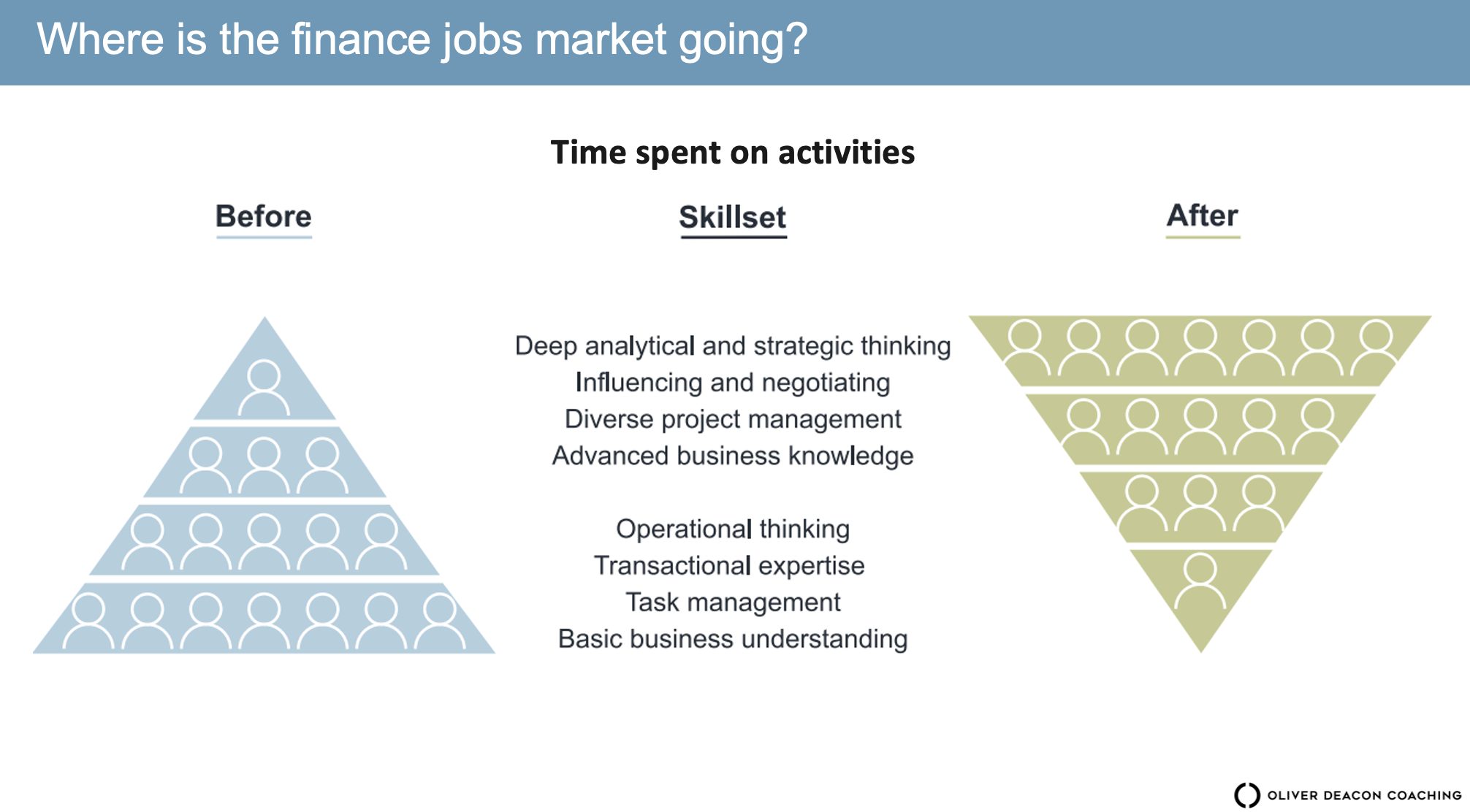Finance transformation is one of the biggest areas of investment within finance in the next 10 years. It’s about using new technology and changing the way you think about and do finance. The result? Improving your own skills and your team’s skills with a more strategic, data-driven and agile approach to finance.
If you’re not considering finance transformation, you risk falling behind. Your competitors are already doing it and they’re gaining a competitive advantage.
What is finance transformation?
Finance transformation is the continuous improvement in how you do things in finance, often (but not always) relating to software. Everyone can use technology to do their jobs more efficiently, freeing up time for value-added activities. Usually there are only a small number of people in each finance department that make the decisions in the software you implement, however everyone can take part in some level of finance transformation.

A couple of examples of how finance transformation cuts out repetitive tasks might be…
- Using technology like Microsoft Copilot (ChatGPT integrated into Excel) to do month-end reporting, forecasting and business cases
- Reconciling balance sheets using cloud-based software
- Using PowerBi or Power Query to speed up, standardise, and automate data processing and reporting.
I believe that finance teams in the future will allocate at least 5 percent of their resources to finance transformation. So if you have a team of 20 people, at least one of them will spend most of their time on it.
But it’s not just going to be that one person. Everyone will need to have this transformational mindset and think about things differently. The problem is lots of people don’t know how to do this – understandably.
So, should you just hire a bunch of project management or finance consultants?
Maybe, but a better idea is to upskill your existing team. Each person should be spending five to 10 percent of their time on continuous improvement and considering how to get better at doing things. But you need the skills to do that!
Where to start with finance transformation
Here are some of the key pillars to focus on within your business.
Strategic planning around transformation
As with everything, start with your strategy first. Here’s a top-level process for you to follow.
- Understand what finance transformation is
- Map out the best way to identify problems and opportunities in your specific organisation
- Build a plan of action to tackle the opportunities and problems
- Develop a vision for what finance should be like in the future
- List your objectives and goals, create an action plan and share it with your team so that everyone is aligned
- Ensure you resource your action plan appropriately.
Process optimisation
The biggest reason that people don’t spend time on the most impactful things is that processes take way too long. In reality, lots of us haven’t done consulting in the past and don’t know how to fix processes. So, to get better at optimising processes, practice these steps:
- Evaluate what processes need work
- Map out the process
- Redesign the processes
- Fix it
- Test it.
With practice, this becomes much easier to do.
Automation and technology
How can you use technology to automate tasks?
- Match problems to technology solutions
- Make a simple return on investment model. How do you value the time, effort, and opportunity to get the cost-benefit of implementing each solution?
- Choose the right software to automate your processes – you need a process for picking and trialling and progressing new software
- Test the software in a light-touch way, try it with a few team members first before rolling it out
- If it adds value, implement it more broadly.
This can seem daunting, but it’s a skill set that you need to build across your teams. So, either you or someone else in your team needs to figure out how to do this.
Data
The biggest thing that stops finance transformation progress is terrible data. Ask the following questions about your company to identify areas for improvement when it comes to getting more value out of your data.
- How do you map your data?
- How do you fix your broken data?
- How can you use tools like Power Query or Alteryx to temporarily solve underlying problems in your data structure?
- How do you start doing great stuff with your data?
Change management
It’s all well and good if you’re excited to do this! Lots of CFOs want to do new things but sometimes teams can be reluctant to change. So, it begs the question, how do you successfully lead and manage change?
For this, you need to consider how to get people on board:
- How do you get momentum around change and get everyone excited about it?
- How do you make time to focus on change?
This is where 90 percent of teams are stuck because they simply just don’t have the time. Here are a few things to consider.
- How do you take time for change?
- How do you keep everyone on track?
- Do you have a practical way to consistently drive continuous improvement?
- How do you grow resilience?
- How do you deal with setbacks?
Where can I learn more about this?
You won’t be surprised to know that I have a resource for you!
My new finance transformation programme launches this summer. You can sign up for the programme here, or get in touch to talk to me more about it.
The course is a boot camp over seven sessions in eight weeks. you look at each of the areas I’ve just spoken about, and I give you the practical tools to go away and do each of these things well. I won’t fix your processes for you but will learn the transferable skills needed to go and do it on your own, or to upskill the rest of your organisation.


